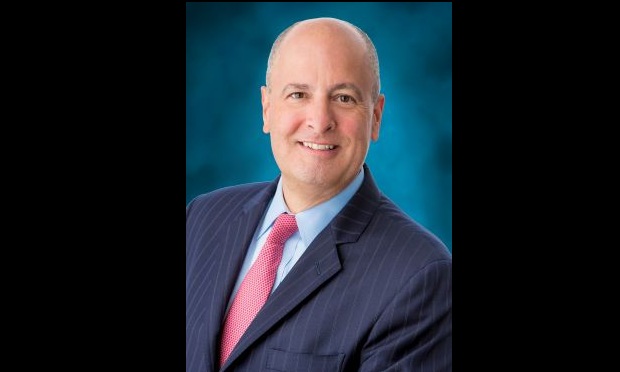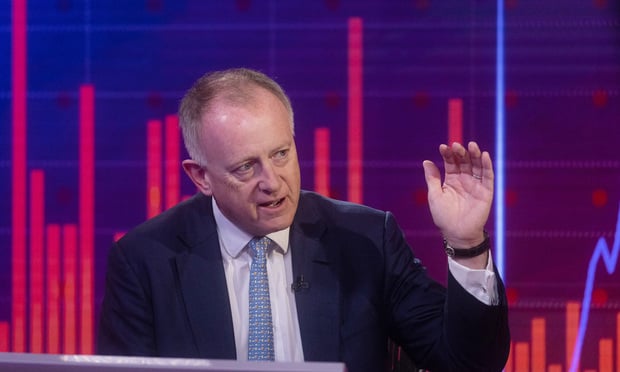Reader response to my June 14/21 column about the latest brouhaha over disclosure of producer compensation ("Don't Ask, Don't Tell?" at http://bit.ly/cmLboP) was fast and furious.
In the column, I commented on the legal challenge to a New York disclosure regulation taking effect Jan. 1, 2011, filed by the Independent Insurance Agents and Brokers of New York and the Council of Insurance Brokers of Greater New York. I sympathized with the insurance department, which wondered what producers might be "trying to hide."
 I got an earful on my June 1 blog posting (http://bit.ly/bslXNG) that served as the basis of my column. The following are edited sections capturing the gist of the arguments presented both for and against New York's pending regulation, and my contention that it would make more sense to go along and get along rather than make a stink in court, which I said would only serve to undermine the industry's already questionable reputation.
I got an earful on my June 1 blog posting (http://bit.ly/bslXNG) that served as the basis of my column. The following are edited sections capturing the gist of the arguments presented both for and against New York's pending regulation, and my contention that it would make more sense to go along and get along rather than make a stink in court, which I said would only serve to undermine the industry's already questionable reputation.
First up is Richard Poppa, president and chief executive officer of the IIABNY, who wrote: "Sam, I'm afraid you've missed the point (unusual for you) on the producer compensation disclosure debate.
"Consumers have shown no interest. There are certainly groups that represent segments of consumers that assert a position in favor of this, but when we asked the Insurance Department how many complaints they had received from individual consumers about lack of compensation disclosure, it was a resounding ZERO.
"Agents and brokers have nothing to hide. IIABNY has long subscribed to the opinion that if a consumer wants to know about a producer's compensation, the consumer should ask and the agent/broker should tell. But if for some reason the producer does not want to tell, then the consumer can find countless producers out there that will tell.
"Our point is that you don't need a burdensome and vague regulation out there to make this happen. You and I both know that the market will bring this to its proper place. If the demand for the information develops and grows, then producers will respond. Look at all the mandated disclosure around mortgages, and even with that disclosure the debacle we witnessed.
"When it all comes down to it, our business is built on trust. Consumers need to find an insurance producer they trust, build that trusting relationship and develop confidence in that agent/broker that allows them to feel comfortable.
"If part of building that trust is learning about the compensation, then that will set the proper stage.
"IIABNY continues to believe that this is a solution looking for a problem. No other states have even come close to this kind of disclosure r?gime. So for our part we think the right thing to do is to keep pushing to get the regulation overturned.
"We also continue to work on approaches to compliance in case this thing is not settled before it takes effect," Mr. Poppa concluded.
Reader Philip Lieberman added that "Richard Poppa's comments embrace the proper analysis. There have been many examples throughout history (not related to insurance) where the heeders of advice to remain silent and not 'fight back' have lived to regret their lack of action.
"Yes, we should do a better job at trumpeting the accomplishments of our industry, but no, we should not accept the heavy hand of government where it is really not needed.
"When you buy a washing machine, are you interested in how much the salesman or store makes in commission, or are you interested in how much it costs and how well it will do the job we need it to do?
"The cost/coverage equation is what the insurance consumer needs to know–it's what they should be focused on finding out and what we need to focus on explaining."
Scott Johnson, executive vice president of the Florida Association of Insurance Agents, added: "Sam, I'm surprised at you. You fell right into the regulators' trap of reshaping the debate. 'Brokers' committed crimes. Agents are being made to pay.
"Everyone knows that agents are paid a commission by companies. In most states it's the law as well as common practice. Brokers, on the other hand, get paid a fee, up front, by the consumer. They are not contracted with the company.
"Agents are either contracted with or employed by the company and, thus, paid by the company. Disclosure by agents of something everyone already knows isn't the same thing as brokers hiding back-end payments from consumers who thought they were working on their behalf.
"Is the commissioner after disclosure of the obvious? Or is he bending to the wishes of large brokers trying to saddle their smaller competitors with unnecessary barriers at the point of sale?"
Another comment on my blog from someone identified only as "Greg" said that "in 20 years of writing coverage, I've never been asked how I get paid nor how much. Consumers don't care–they just want to know you'll be there when they need you."
One reader who took my side was "Darwin," who wrote that "those who hold licenses to sell insurance in New York are both 'brokers' and 'agents,' including at times acting as both for the same client. One just cannot say 'brokers' are bad and 'agents' are not."
Darwin added that "trust is not granted, it is earned. If anything, having the opportunity to tell a client or prospect who you are and what you do seems to me to be a great starting point for earning trust.
"How can trust exist if there is no transparency? How can a consumer know that they can ask about the cost of compensation if they are never told that they can ask in the first place?…"
He argued that "disclosure gives agents and brokers the long-sought-after opportunity to tell people who they are. We are not 'order-takers,' we are not some 'quote machine'–we provide a level of customer service that in many industries has been lost and gone. Why would someone want to fight against that opportunity?
"Millions of dollars are spent in advertising to try to get a similar message to millions who just hear a commercial. We get to do the same thing for real–one on one."
Darwin concluded that "on the subject of disclosure, the train has left the station. There is no turning back–and there shouldn't be. It's past time we had open conversations with our clients and told them who we are and what we do–and by the way, we are the good guys."
But another reader identified as "Beagle" went back at Darwin, writing: "Darwin, I'm with you on your first point, but then you go off the reservation.
"You say 'trust is not granted, it is earned. If anything, having the opportunity to tell a client or a prospect who you are and what you do seems to me to be a great starting point for earning trust.'
"I say the opportunity is always there, regardless of a mandate, but this 'opportunity' comes with time-consuming paperwork.
"You ask 'How can trust exist if there is no transparency? How can a consumer know that they can ask about the cost of compensation, if they are never told that they can ask in the first place?'
"I say: You seem to think that they don't know they can ask. Why? Why can't they ask? The reason they don't ask, as others have stated, is because they don't care. You assume consumers are being kept in the dark. They're not. There's zero evidence that they are.
"You say that 'disclosure gives agents and brokers the long-sought-after opportunity to tell people who they are…' I say, again, this is not a new opportunity to tell the story. The opportunity has always existed. [But this disclosure regulation] comes with a mandate and time-consuming paper work and records retention requirements. Fine 'opportunity,' that.
"This fight has never been about disclosure per say. It's about fighting the unnecessary costs to agents (and in turn clients) of both time and resources based on a phantom problem.
"I do agree with your last point, we are the good guys–good guys who have integrity and won't lay down when someone tramples on it."
Want to continue reading?
Become a Free PropertyCasualty360 Digital Reader
Your access to unlimited PropertyCasualty360 content isn’t changing.
Once you are an ALM digital member, you’ll receive:
- Breaking insurance news and analysis, on-site and via our newsletters and custom alerts
- Weekly Insurance Speak podcast featuring exclusive interviews with industry leaders
- Educational webcasts, white papers, and ebooks from industry thought leaders
- Critical converage of the employee benefits and financial advisory markets on our other ALM sites, BenefitsPRO and ThinkAdvisor
Already have an account? Sign In Now
© 2025 ALM Global, LLC, All Rights Reserved. Request academic re-use from www.copyright.com. All other uses, submit a request to [email protected]. For more information visit Asset & Logo Licensing.








